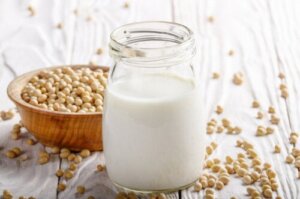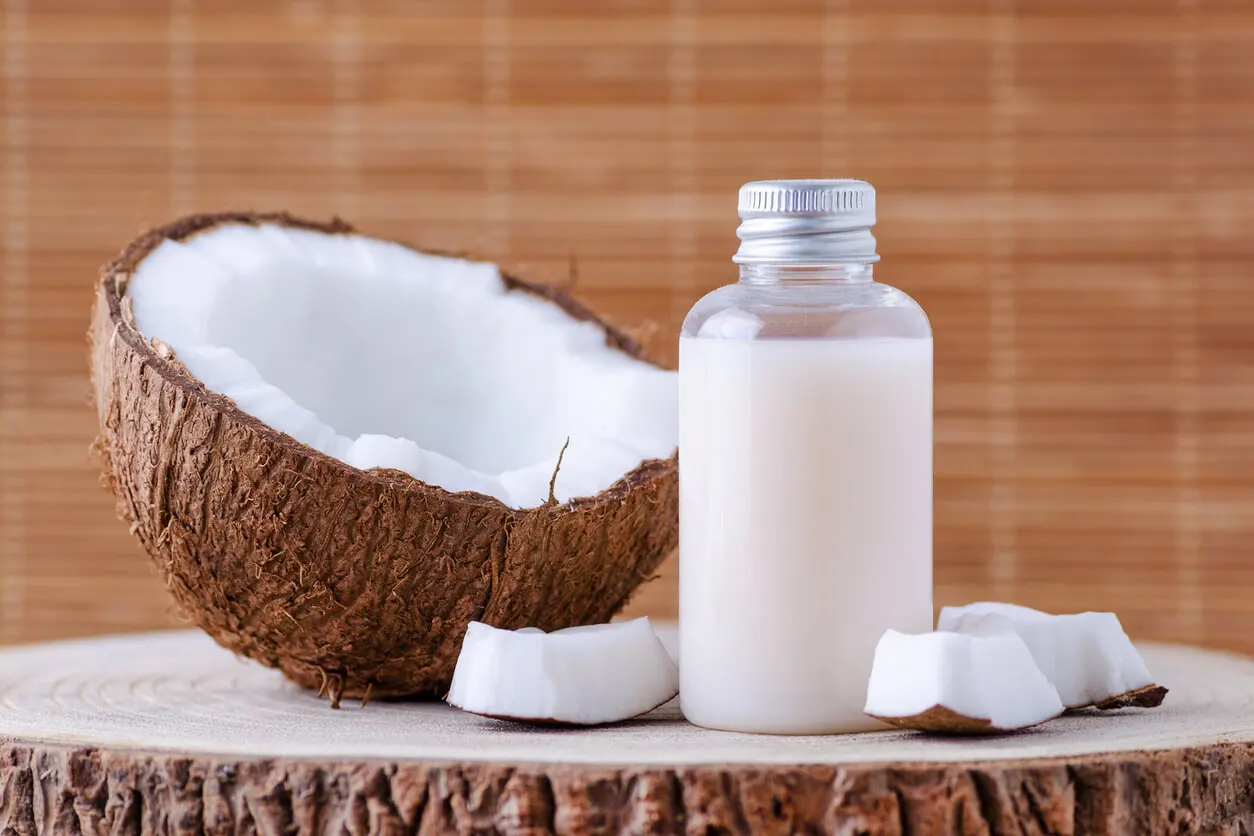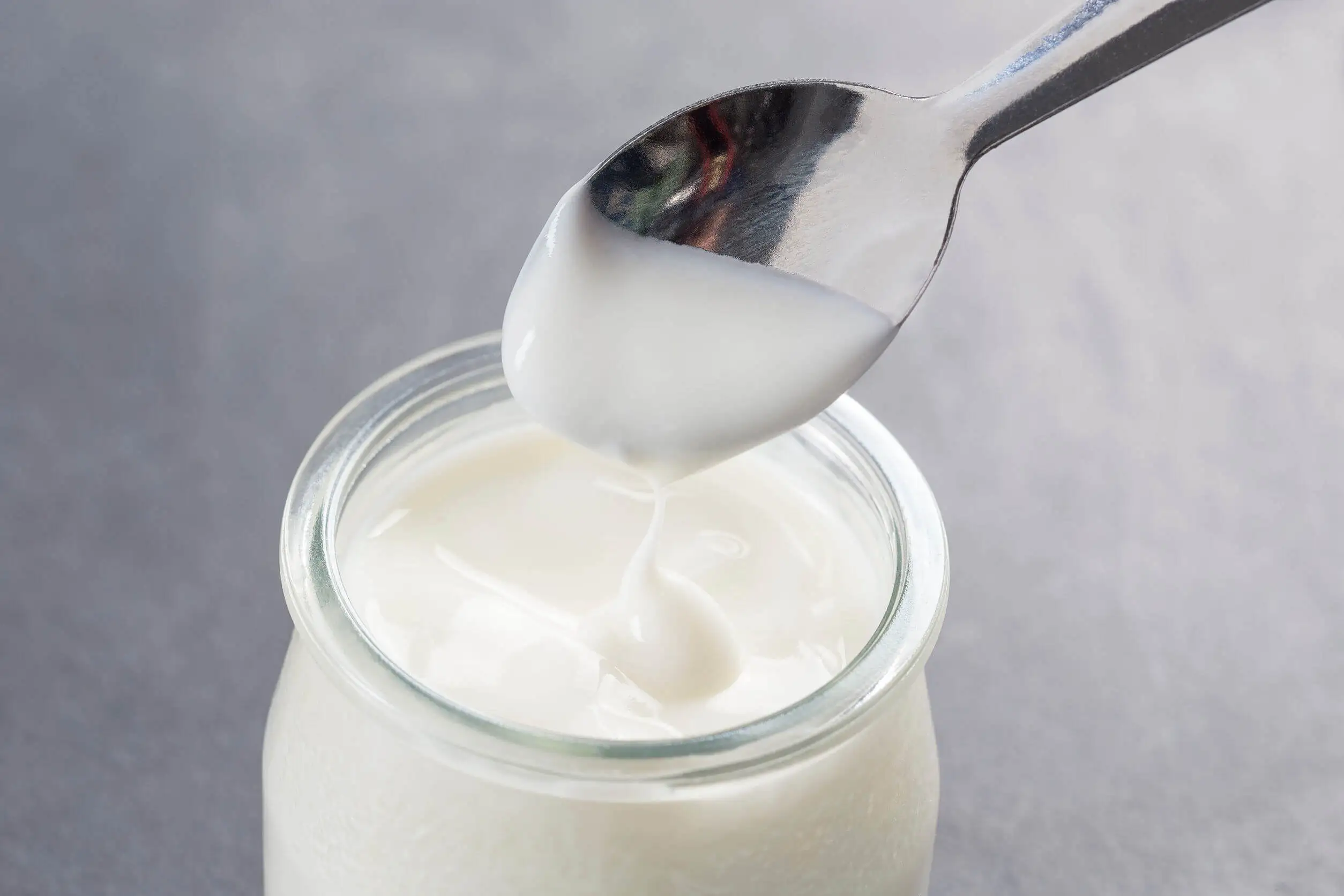Plant-Based Yogurts: All You Need to Know


Written and verified by the nutritionist Saúl Sánchez Arias
In recent years, plant-based yogurts have become increasingly available as an alternative to traditional dairy products. Although they can be a good option, their nutritional value is far different from the classic versions we’re all used to. We are going to show you the main differences and benefits of this kind of food.
Before we start, we have to emphasize that the presence of dairy products in the diet is recommended to maintain a good state of health. Above all, fermented dairy products. They contain live bacteria that are positive for the digestive tract.
What are plant-based yogurts?
Plant-based yogurts are a series of products that imitate traditional yogurt in texture and flavor, but are not made from animal milk. Because of this, they’re suitable for vegans.
In general, they’re made from soy, almond, or coconut drink, although they don’t undergo a fermentation process. They add different types of additives to improve the texture.
It’s important to note that this type of yogurt doesn’t contain lactose or galactose, so their digestibility is good and they’re an option to take into account for those who are intolerant. Neither do they have fats, much less of the trans type.
Its calorie level is moderate. They can be included in the context of a hypocaloric diet with the aim of losing weight.

Benefits of plant-based yogurts
Among the main benefits of plant-based yogurts, we can highlight their low energy intake and their ability to produce satiety. Because of this, they can be introduced into any diet, thus reducing anxiety and improving adherence to it. In the medium term, this makes a difference, as it will avoid abandonment and a rebound effect.
On the other hand, they’re able to provide quality minerals, such as calcium. The level will be lower than that of animal yogurts, but they can contribute. However, it must be ensured that there is no vitamin D deficiency in the body.
Certain bases used for plant-based yogurts have demonstrated certain specific benefits. This is the case with soy beverages, which could contribute to the control of triglycerides in the blood.
On the other hand, beta-glucans from oats, which are sometimes used as a base for plant-based yogurts, could have an effect on reducing bad cholesterol or LDL. These same substances are still being investigated to determine if they contribute to the prevention of insulin resistance.
Disadvantages of plant-based yogurts
Despite the benefits mentioned above, it’s true that plant-based yogurts have several disadvantages compared to those of animal origin. They don’t contain probiotics, for example.
This type of live bacteria has been shown to be very positive for intestinal function and overall health. They improve digestive processes and nutrient absorption.
However, it’s also true that several commercial brands of plant-based yogurts fortify the drink with bacterial cultures. These additives could solve the natural deficit in this field. The technological research in this respect is promising.
The presence of proteins is also lower. In addition, they aren’t of high biological value, as they don’t have all the essential amino acids or a good digestibility score. They’ll help to cover daily requirements, but they aren’t a good main source.
Finally, they aren’t comparable in terms of micronutrient presence either. They can help cover needs, but those of animal origin provide many more vitamins and minerals.

You may also be interested in: Whole Milk Yogurt or Low-Fat Yogurt? Which Is The Best For Your Diet?
Plant-based yogurts are a less nutrient-dense alternative
Plant-based yogurts are a less nutrient-dense alternative to animal-based yogurts. But it can make sense to include them in the diet when the aim is to improve satiety.
This is also the case when the original ones aren’t tolerated due to problems with lactose or an allergy to cow’s milk proteins. There’s even the option of using them as ingredients in different culinary preparations.
Covering protein and calcium requirements is considered decisive in order to reduce the risk of osteoporosis. Although traditional dairy products are highly recommended, supplementation with vegetable beverages could provide some of the daily requirements. However, their exclusive use will not be sufficient.
All cited sources were thoroughly reviewed by our team to ensure their quality, reliability, currency, and validity. The bibliography of this article was considered reliable and of academic or scientific accuracy.
- Goltzman D, Mannstadt M, Marcocci C. Physiology of the Calcium-Parathyroid Hormone-Vitamin D Axis. Front Horm Res. 2018;50:1-13. doi:10.1159/000486060
- Abbasi, Nazanin N., et al. “Oat β-glucan depresses SGLT1-and GLUT2-mediated glucose transport in intestinal epithelial cells (IEC-6).” Nutrition Research 36.6 (2016): 541-552.
- Sánchez B, Delgado S, Blanco-Míguez A, Lourenço A, Gueimonde M, Margolles A. Probiotics, gut microbiota, and their influence on host health and disease. Mol Nutr Food Res. 2017;61(1):10.1002/mnfr.201600240. doi:10.1002/mnfr.201600240
- Richter M, Baerlocher K, Bauer JM, et al. Revised Reference Values for the Intake of Protein. Ann Nutr Metab. 2019;74(3):242-250. doi:10.1159/000499374
- Pérez, Neus Bernat. Desarrollo, caracterización y optimización de productos fermentados a base de licuados vegetales como alternativa a los yogures convencionales. Diss. Universitat Politècnica de València, 2013.
- Shen, Xiao Li, et al. “Effect of oat β-glucan intake on glycaemic control and insulin sensitivity of diabetic patients: a meta-analysis of randomized controlled trials.” Nutrients 8.1 (2016): 39.
This text is provided for informational purposes only and does not replace consultation with a professional. If in doubt, consult your specialist.








